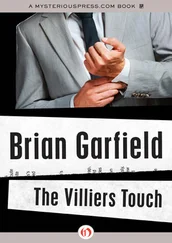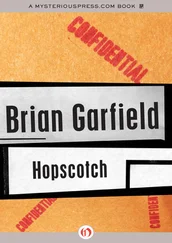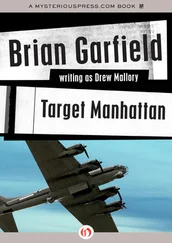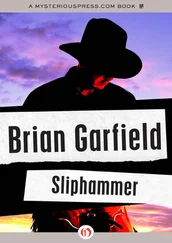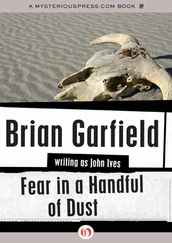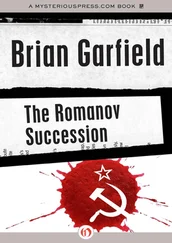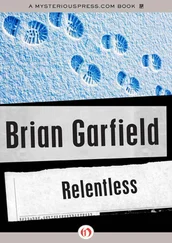Brian Garfield - Kolchak's gold
Здесь есть возможность читать онлайн «Brian Garfield - Kolchak's gold» весь текст электронной книги совершенно бесплатно (целиком полную версию без сокращений). В некоторых случаях можно слушать аудио, скачать через торрент в формате fb2 и присутствует краткое содержание. Жанр: Политический детектив, на английском языке. Описание произведения, (предисловие) а так же отзывы посетителей доступны на портале библиотеки ЛибКат.
- Название:Kolchak's gold
- Автор:
- Жанр:
- Год:неизвестен
- ISBN:нет данных
- Рейтинг книги:3 / 5. Голосов: 1
-
Избранное:Добавить в избранное
- Отзывы:
-
Ваша оценка:
- 60
- 1
- 2
- 3
- 4
- 5
Kolchak's gold: краткое содержание, описание и аннотация
Предлагаем к чтению аннотацию, описание, краткое содержание или предисловие (зависит от того, что написал сам автор книги «Kolchak's gold»). Если вы не нашли необходимую информацию о книге — напишите в комментариях, мы постараемся отыскать её.
Kolchak's gold — читать онлайн бесплатно полную книгу (весь текст) целиком
Ниже представлен текст книги, разбитый по страницам. Система сохранения места последней прочитанной страницы, позволяет с удобством читать онлайн бесплатно книгу «Kolchak's gold», без необходимости каждый раз заново искать на чём Вы остановились. Поставьте закладку, и сможете в любой момент перейти на страницу, на которой закончили чтение.
Интервал:
Закладка:
I timed the searchlight sweeps. They didn’t work in unison; they didn’t always cross each other because sometimes they were both moving in the same direction. It made the intervals impossible to time precisely.
Generally it seemed about thirty seconds from the time one light hit the end of its arc and the time it made a complete circuit to that point again. Since the light crossed this point in the fence twice at this end of its arc it meant there was about a twenty-five second dark interval-provided the second light was moving in a pattern directly opposite to that of the first. That coincidence seemed to take place every ten or twelve minutes.
I had several hours to make these calculations and I made them with cool aplomb. The insensate stupidity had not worn off.
It was a warm night but I shivered through it.
I made my plan on the basis of a shallow depression in the earth about eight feet this side of the fence. When the lights crossed the little hollow they left it in shadow. It was a few feet to one side of the straight line of the four trees and that meant it might contain a land mine and so I spent at least two hours working on alternative ideas but none of them worked; it kept coming back to that hollow because I wasn’t going to have time to make the whole run in one go, not when I had to stop and get through the fence midway. The strands were less than a foot apart and you couldn’t simply dive through them. I was going to have to make it in two runs and the only place I could stop was in that hollow. If there was a mine in it I wouldn’t have to concern myself about getting through the fence.
At an ordinary walking pace you cover about five feet a second. Sprinting over short distances you can multiply that by four. If I ran full tilt I could reach the fence in four seconds, take seventeen seconds to get through the fence and still have four seconds to sprint to the far trees without being picked up by the light. But Pudovkin had pointed out the fallacy in that. The first thing they’d see-light or no light-would be a running figure. You had to move slowly.
Walking slowly it would take me at least fifteen seconds to reach the fence. That was why I had to use the depression.
Behind me the sky pinked up with heavy clouds: dusk, then dawn. Fear began to pump the sweat out of me now.
I had to wait for that moment when the searchlights were almost equaled by the growing daylight: when everything merged into a common murk.
The trees made a mosaic against the clouds. I left my coat on the ground; it would only impede me on the barbed wire. I picked up the suitcase.
Sky merged with earth along the uncertain eastern horizon. I turned away from it and faced the fence. The beams were no longer visible but you could still see the yellow disc of light sliding along the ground, growing parabolically longer as it approached the end of its swing. It was no longer distinct at the verges and I knew it was time to go; never mind the synchronization of the farther light.
Up on one knee. I’d studied the line all night; I’d memorized it. The only place I might hit a mine was the hollow. Reckless: the hell with it, go.
The light swept past the hollow, faded, came back faintly. When it crossed the hollow again on its return sweep I walked out of the trees.
I moved low to the ground and slowly, very slowly, bent double with my breathing tight and shallow, my sphincter contracted, my palms damp, sweat running in my eyes. I kept looking both ways at the towers because if a light or a gun muzzle began to swing too fast my way I was going to run for it.
The cliche is that time slows to a crawl in such circumstances: that one’s feet seem to drag leadenly, every lurching step is an agony of needle-pierced nerves, all the muscles are drawn so tight they twang with vibration and the impulse to break and run wildly is almost overpowering. The cliche is true. There is no way to remember it all clearly but it lasted subjective hours. I had the suitcase clutched to my chest as if it would shield me against bullets; I moved like a man about to retch-and I was ready to. Somewhere in my head a clock was at work and at hourly intervals I knew another second had passed-yet at the same time the instants raced by in such a blur that I knew I wouldn’t nearly have time to reach the hollow before the lights came swinging back and the guns opened up.…
When the pale searchlight pinned me I was lying bolt still in the hollow because they would spot movement before anything else. I didn’t stir-and the light moved on. There was no land mine, but I didn’t even think of that until after I was belly-flat in the depression.
I felt it return across my back: felt it because I’m sure I didn’t see it. The daylight seemed to be strengthening with incredible haste. They would spot me now without the lights.…
Wait now until they’ve begun to turn and look another way-wait for the light to circle away. Now. Up. Three strides to the fence. I went against it prone-laid my knee across the bottom strand to bend it down; lifted the upper strand.
The sudden noise of a man’s shout tore a gash through the fabric of the dawn. I could not look up: I could not. It was like burying my face in the pillow, that inability to look-as if by not looking I would prevent them from shooting.… I rolled through the narrow gap in the wire. My suitcase caught and jerked me around and I knew there was no way to free it and I left it there and ran- ran , diving and zigzagging with my soles slipping on the damp weeds, legs pumping, arms driving, my eyes only on the Turkish wood that meant life.
The stutter of the machine gun was curiously far off but then above the roar of my ears I heard the bullets whack past me and I learned that all the writings are wrong: bullets don’t whiz or whistle or fan the air, they crack like explosives when they go by-a sonic boom. I listened with compulsive curiosity to this phenomenon and then I was tumbling, sliding in among the trees and the guns were chipping bark and twigs above my head: I scrambled and pawed into the wood and at some indeterminate moment the guns stopped and I was alive.
I crawled deep into the forest. A crescendo of pounding blood pulsed in my head. I stood up and kicked out, flexing legs and arms recklessly to find out if I’d been hit. Then I stood with the sweat drying on me and pressure drained out of my head and I had to sit down quickly and tense the muscles of my stomach to keep from passing out.
I fought it desperately. After a very long time I was able to get up. With a deep drained ache in all my fibers I began to limp toward the river.
18
Trabzon. I caught a raw whiff of the sea. A bright light at the far side of the bay stroked the water with a pale rippling stripe. I was riding on the half-exposed springs of the seat of a ruined Dodge pickup truck beside a Kurdish woodman. The pickup bed was piled so high with cordwood that logs rolled off now and then and lay obstructions in the road behind. I was not trained to divide his language into words, nor he mine; we shared the word “Trabzon” and occasional sidewise smiles that strangers use to indicate to each other that they are not threatening.
A waterfront town: whitewashed stucco, bleached sidewalks constructed of cement and seashell. At the single loading dock a freighter stood with its hull broken amidships into a hinged loading ramp. Wiry workmen in greasy fezzes and white peon clothes made ant streams in and out of the hold, unloading her into a corrugated metal warehouse under high incandescent lights.
The woodman let me off in the center of town. Veiled moslem women peered from shuttered windows. A boy pedaled by on a bike. The cars parked at the curbs were mostly American-made and always very old: 1953 Plymouths, 1957 Chevrolets. One of them was pale green with TAXI painted freehand in yellow on the door. I approached the man who leaned against its fender. “Taverna? Pinar?”
Читать дальшеИнтервал:
Закладка:
Похожие книги на «Kolchak's gold»
Представляем Вашему вниманию похожие книги на «Kolchak's gold» списком для выбора. Мы отобрали схожую по названию и смыслу литературу в надежде предоставить читателям больше вариантов отыскать новые, интересные, ещё непрочитанные произведения.
Обсуждение, отзывы о книге «Kolchak's gold» и просто собственные мнения читателей. Оставьте ваши комментарии, напишите, что Вы думаете о произведении, его смысле или главных героях. Укажите что конкретно понравилось, а что нет, и почему Вы так считаете.

